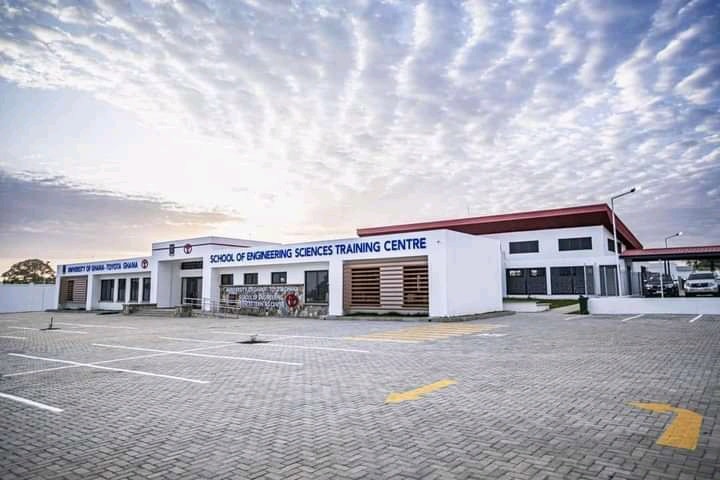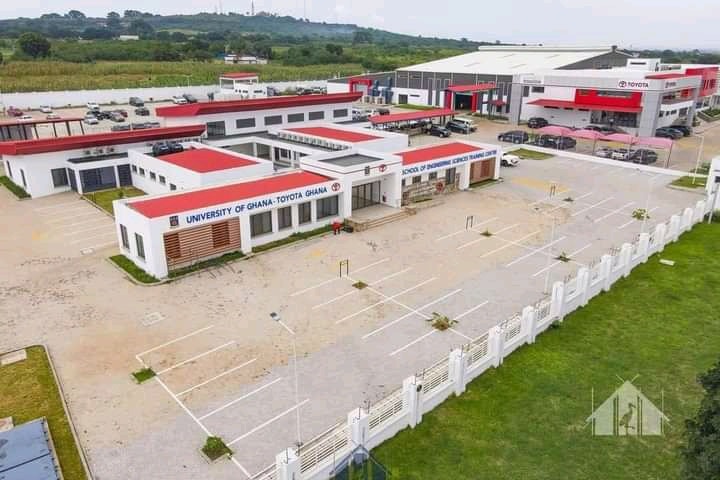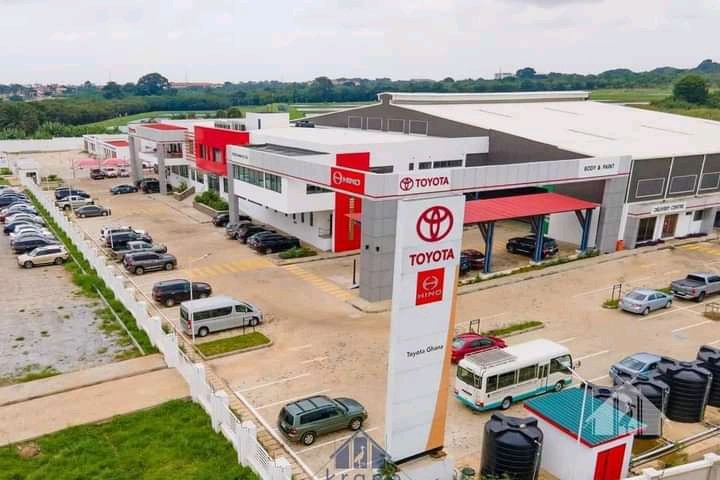Toyota hands over a Million Dollar Engineering Sciences Training Centre to University of Ghana
Toyota Ghana Company Limited (TGCL), a prominent automobile dealership, has officially handed over a state-of-the-art Engineering Sciences Training Centre worth $1 million to the University of Ghana in Accra. Situated on a sprawling six-acre campus, this cutting-edge facility is located at the Haatso precinct of the university, adjacent to the Great Hall.
This milestone achievement is the realization of a collaborative partnership initiated in 2016 between the University of Ghana and the esteemed automobile company.

Furthermore, Toyota Ghana has generously contributed a 33-seater Toyota Coaster bus to the university. This bus will serve as a means of transportation for students to and from the newly inaugurated training center. In addition to this, the company has pledged to provide engineering equipment valued at $2 million over the span of a decade. An essential component of their commitment is the establishment of a $100,000 scholarship fund within this same timeframe, aimed at supporting exceptionally talented yet financially challenged students in their pursuit of higher education.
The official handover ceremony was graced by prominent dignitaries, including Dr. Yaw Osei Adutwum, the Minister of Education; Justice Sophia A. B. Akuffo (retired), Chairperson of the University of Ghana Council; Prof. Nana Aba Appiah Amfo, the Vice-Chancellor of the University of Ghana (U-G); and Prof. Charles Ackah, Chairman of the UG Chaplaincy Board. The event also witnessed the presence of Hisanobu Mochizuki, the Japanese Ambassador to Ghana; Kohji Yanaka, the Managing Director of Toyota Ghana; and Patrick Nimoh, Chief Director of the Ministry of Trade and Industry.

The Engineering Sciences Training Centre is equipped with a state-of-the-art computer-aided design (CAD) room furnished with 40 computers. Additionally, a three-dimensional (3D) printing machine is available for students to create small parts, offering them hands-on experience in design and production. The facility houses three spacious lecture rooms, each capable of accommodating up to 250 students, featuring modern furniture and advanced audio-visual systems.
Other integral components of the center include a well-stocked library, a fully-equipped engineering laboratory, an in-house practical training workshop complete with automobile simulators, test rigs, and vehicle hydraulic lifts.
Speaking at the ceremony, Mr. Kohji Yanaka underscored the significance of the partnership between Toyota Ghana and the University of Ghana, emphasizing their shared commitment to nurturing talent, fostering innovation, and cultivating a skilled workforce capable of propelling the nation towards progress. He stated, “At Toyota Ghana, we believe that our responsibility extends beyond the realm of business. We are dedicated to being a socially responsible company by executing impactful projects in the areas of health, education, environment, and road safety within the communities we operate.” Mr. Yanaka expressed his optimism that the newly inaugurated facility would serve as a catalyst for positive change, equipping students with the essential skills and knowledge needed for personal and national growth.

Prof. Nana Aba Appiah Amfo, Vice-Chancellor of the University of Ghana, lauded the Engineering Sciences Training Centre as a pivotal asset in shaping the future of engineering education not only within the university but throughout the entire country. She articulated her vision to create a culture that fosters research, teaching, learning, and administrative processes driven by technology anchored in humanism. Prof. Amfo additionally praised the partnership as a shining example of how academic institutions and industries can collaborate to nurture the next generation of transformational leaders and problem solvers. She foresees the center as a model for future collaborations between academia and industry.
The Japanese Ambassador to Ghana, Hisanobu Mochizuki, commended Toyota Ghana and the University of Ghana for their unwavering commitment to the successful completion of this transformative project. He acknowledged that the synergy between industry and academia, exemplified by these two institutions, is instrumental in achieving collective growth. The ambassador reiterated Japan’s dedication to supporting Ghana’s development across various sectors, promising continued collaboration through various initiatives to advance the nation’s economy.

 News3 months ago
News3 months ago
 Health3 months ago
Health3 months ago
 News3 months ago
News3 months ago
 News3 months ago
News3 months ago
 News3 months ago
News3 months ago
 News2 months ago
News2 months ago
 News3 weeks ago
News3 weeks ago



